Medical articles
What are the signs of kidney stones?
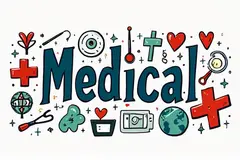 Recognizing Kidney Stone Symptoms
Kidney stones are a painful and common condition that affects millions of people each year. Understanding the signs and symptoms is crucial for prompt diagnosis and treatment. This article will guide you through recognizing various indicators of kidney stones, helping you to seek medical attention before complications... read more...
Recognizing Kidney Stone Symptoms
Kidney stones are a painful and common condition that affects millions of people each year. Understanding the signs and symptoms is crucial for prompt diagnosis and treatment. This article will guide you through recognizing various indicators of kidney stones, helping you to seek medical attention before complications... read more...
Is it possible to get rid of stretch marks?
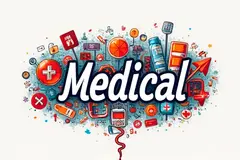 Can You Really Eliminate Stretch Marks Forever?
Stretch marks, also known as striae, are a common concern for many people. These pink or purple lines that appear on the skin can be unsightly and may cause self-consciousness. But is it possible to get rid of stretch marks forever? This article explores the possibilities and provides tips to help you fade away... read more...
Can You Really Eliminate Stretch Marks Forever?
Stretch marks, also known as striae, are a common concern for many people. These pink or purple lines that appear on the skin can be unsightly and may cause self-consciousness. But is it possible to get rid of stretch marks forever? This article explores the possibilities and provides tips to help you fade away... read more...
How does smoking harm?
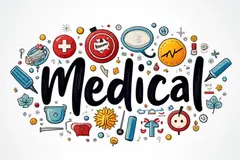 Smoking is a widespread habit that affects millions of people worldwide. While many are aware of the dangers associated with smoking, understanding the full extent of its harmful effects can be crucial in motivating individuals to quit or avoid starting this dangerous habit altogether.
Smoking's Impact on Lung Health
The most immediate and well-known impact... read more...
Smoking is a widespread habit that affects millions of people worldwide. While many are aware of the dangers associated with smoking, understanding the full extent of its harmful effects can be crucial in motivating individuals to quit or avoid starting this dangerous habit altogether.
Smoking's Impact on Lung Health
The most immediate and well-known impact... read more...
Is yoga considered a form of exercise?
 Is Yoga Really Exercise?
Yoga is often perceived as a form of spiritual or mental practice rather than physical exercise. However, this perception can be misleading. In reality, yoga encompasses various postures and movements that engage the body in dynamic ways, making it an integral part of a well-rounded fitness routine.
Can Yoga Replace Gym... read more...
Is Yoga Really Exercise?
Yoga is often perceived as a form of spiritual or mental practice rather than physical exercise. However, this perception can be misleading. In reality, yoga encompasses various postures and movements that engage the body in dynamic ways, making it an integral part of a well-rounded fitness routine.
Can Yoga Replace Gym... read more...
Signs of dehydration?
 What Are the First Signs of Dehydration?
Dehydration occurs when your body loses more fluids than it takes in, leading to a deficiency that can affect various bodily functions. The first signs often appear subtly but are crucial indicators that you need to increase your fluid intake.
How to Spot Early Signs of Dehydration
Dry Mouth: Feeling parched is one... read more...
What Are the First Signs of Dehydration?
Dehydration occurs when your body loses more fluids than it takes in, leading to a deficiency that can affect various bodily functions. The first signs often appear subtly but are crucial indicators that you need to increase your fluid intake.
How to Spot Early Signs of Dehydration
Dry Mouth: Feeling parched is one... read more...
What is Parkinson`s?
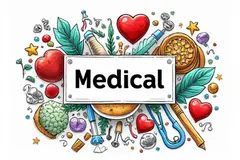 Understanding Parkinson's Disease Basics
Parkinson's disease is a progressive disorder of the nervous system that affects movement. It develops gradually, sometimes starting with a barely noticeable tremor in just one hand. The disorder also commonly causes stiffness or slowing of movement. In the early stages of Parkinson’s disease, your face may show... read more...
Understanding Parkinson's Disease Basics
Parkinson's disease is a progressive disorder of the nervous system that affects movement. It develops gradually, sometimes starting with a barely noticeable tremor in just one hand. The disorder also commonly causes stiffness or slowing of movement. In the early stages of Parkinson’s disease, your face may show... read more...
Vitamin deficiency symptoms and preventive measures
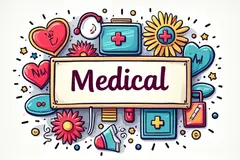 Ensuring adequate vitamin intake is crucial for maintaining overall health, but many people may not be aware of the signs that indicate a deficiency. This article delves into common vitamin deficiencies, their symptoms, and practical steps to prevent them.
Spotting Vitamin D Deficiency Symptoms
Vitamin D plays a vital role in bone health, immune function,... read more...
Ensuring adequate vitamin intake is crucial for maintaining overall health, but many people may not be aware of the signs that indicate a deficiency. This article delves into common vitamin deficiencies, their symptoms, and practical steps to prevent them.
Spotting Vitamin D Deficiency Symptoms
Vitamin D plays a vital role in bone health, immune function,... read more...
Are there foods that increase platelet count?
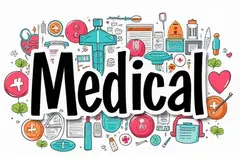 Platelets, also known as thrombocytes, are small blood cells that play a crucial role in the clotting process and preventing excessive bleeding. A low platelet count can lead to various health issues, including increased risk of bruising or bleeding. Fortunately, there are several foods that can naturally boost your platelet levels.
Foods to Boost Your... read more...
Platelets, also known as thrombocytes, are small blood cells that play a crucial role in the clotting process and preventing excessive bleeding. A low platelet count can lead to various health issues, including increased risk of bruising or bleeding. Fortunately, there are several foods that can naturally boost your platelet levels.
Foods to Boost Your... read more...
Why are vaccines important?
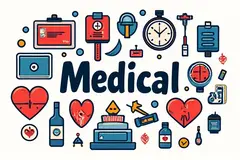 Vaccines are one of the most significant public health achievements in modern history. They have saved countless lives and prevented widespread disease outbreaks, making them an essential tool for maintaining individual and community health.
Why You Should Get Vaccinated Today
The decision to get vaccinated is a crucial step towards protecting yourself from... read more...
Vaccines are one of the most significant public health achievements in modern history. They have saved countless lives and prevented widespread disease outbreaks, making them an essential tool for maintaining individual and community health.
Why You Should Get Vaccinated Today
The decision to get vaccinated is a crucial step towards protecting yourself from... read more...
Understanding Daptomycin`s Role in Antibiotic Therapy
 Daptomycin: Comprehensive Guide for Antibiotic Therapy
Daptomycin is a potent antibiotic used primarily to treat serious bacterial infections, particularly those caused by methicillin-resistant Staphylococcus aureus (MRSA). This article delves into the various aspects of Daptomycin's use in clinical settings, including its effectiveness, dosing guidelines,... read more...
Daptomycin: Comprehensive Guide for Antibiotic Therapy
Daptomycin is a potent antibiotic used primarily to treat serious bacterial infections, particularly those caused by methicillin-resistant Staphylococcus aureus (MRSA). This article delves into the various aspects of Daptomycin's use in clinical settings, including its effectiveness, dosing guidelines,... read more...
When to see an allergist?
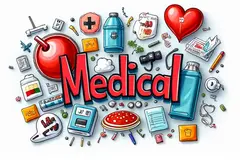 When Should You Visit an Allergist?
If you're experiencing persistent or severe allergy symptoms, it might be time to consult with a specialist. An allergist is a medical professional who specializes in diagnosing and treating allergies, asthma, and other immune system disorders. Understanding when to seek help from an allergist can significantly improve... read more...
When Should You Visit an Allergist?
If you're experiencing persistent or severe allergy symptoms, it might be time to consult with a specialist. An allergist is a medical professional who specializes in diagnosing and treating allergies, asthma, and other immune system disorders. Understanding when to seek help from an allergist can significantly improve... read more...
Is nausea always related to motion sickness?
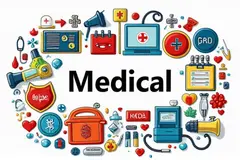 Nausea is a common symptom that affects millions of people daily. While motion sickness is often the first thing that comes to mind when thinking about nausea, there are numerous other causes and triggers for this uncomfortable sensation. This article delves into the various factors contributing to nausea beyond motion sickness, providing a comprehensive... read more...
Nausea is a common symptom that affects millions of people daily. While motion sickness is often the first thing that comes to mind when thinking about nausea, there are numerous other causes and triggers for this uncomfortable sensation. This article delves into the various factors contributing to nausea beyond motion sickness, providing a comprehensive... read more...